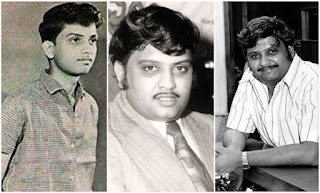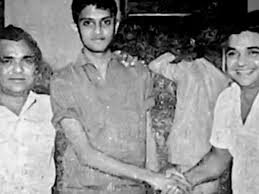PART 3 OF 10: COLLABING WITH THE RAJA
Balu's first two numbers in Tamil were smash hits. It was not just the songs that were hits. The singer was as well. What people loved about Balu was how artfully he plaited his fulsome voice with what would become his trademark musical gimmickry, thus far unheard of in the South. There were the detractors - some felt his singing was too "light" while others argued that his style was too overstated. Till then, the singing stalwarts in Tamil were, without exception, classically trained and sang right from their lower stomach. Seergazhi Govindarajan's booming voice emerged from his naabi and reached the listener, without a microphone or a radio, my cousin used to say. It was a back-handed compliment, to indicate that most yesteryear singers lacked finesse. I didn't say it, my cousin did. I will tell you this though. What Balu brought into vogue was his voice acting; a type of emotive, nuanced singing that had a tinge of Rafi, a whiff of Ghantasala and the timbre o...

